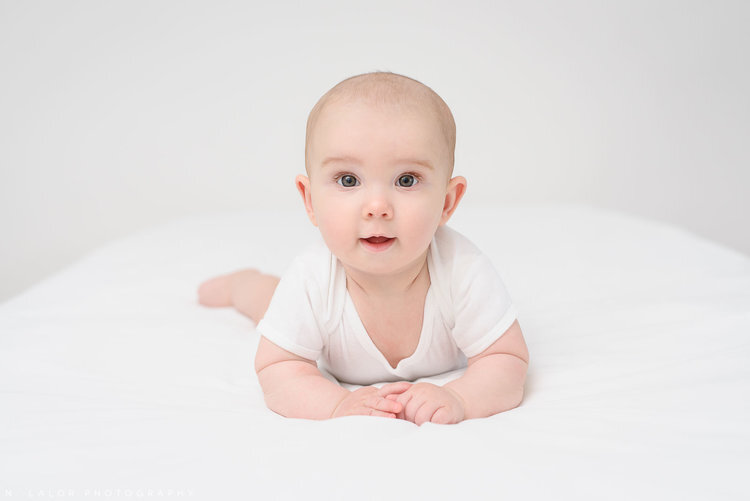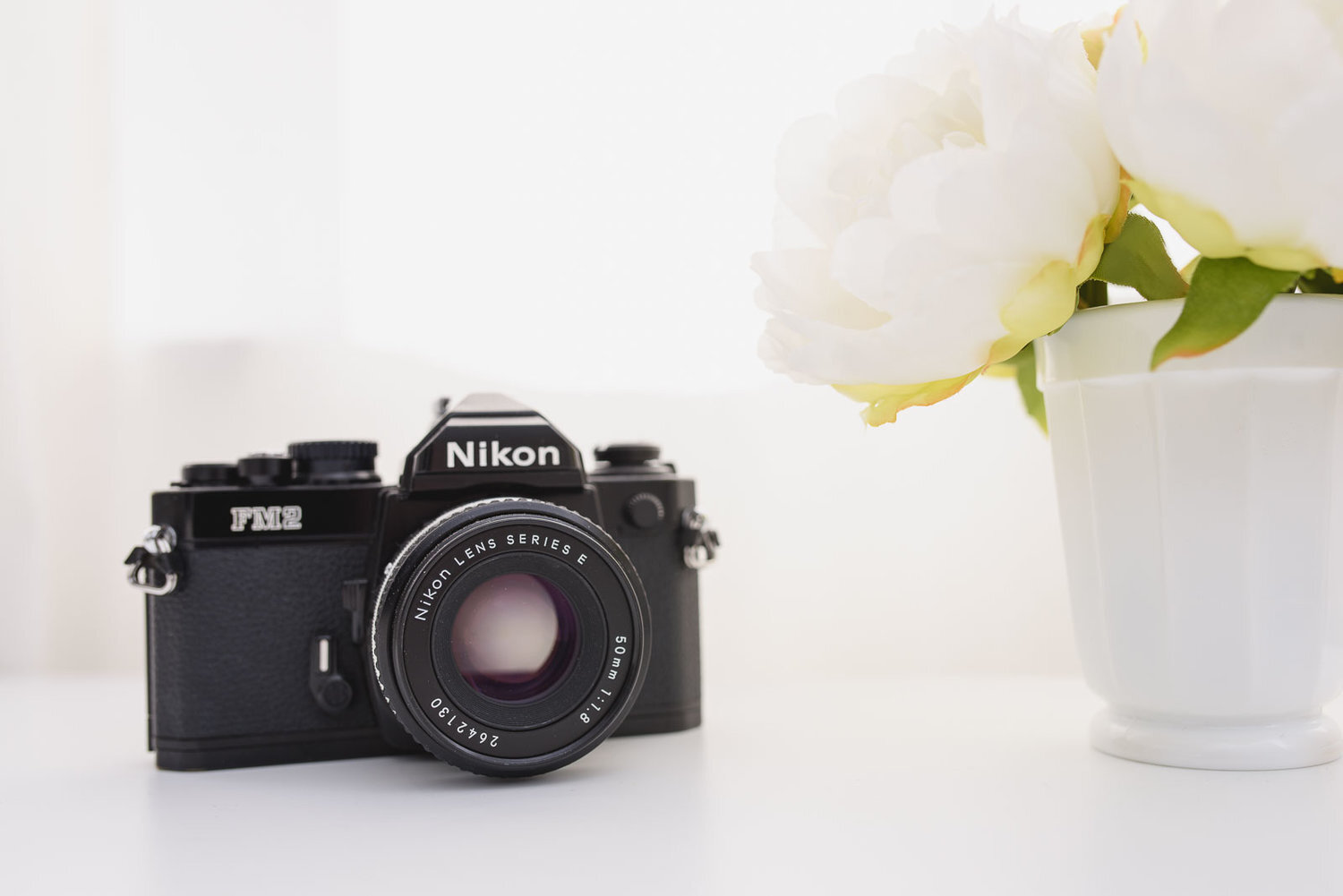The Camera Doesn't Matter
I used to get a little envious when I saw someone with a large professional camera on the street. By definition, I thought they were a better photographer because they had a fancier camera. It makes sense, right? The bigger and more expensive the camera, the better the photographs. Well, I know a little better now! Because getting a big fancy camera did NOT magically make me a better photographer.
The popular analogy is that a great oven doesn't make someone a world-class chef. An oven is simply a tool that is used to make an intricate meal.. but it's the person who's doing the cooking that is responsible for the outcome. It's exactly the same with a camera. Knowing how to use the equipment is the first step to intentionally creating beautiful images, and you certainly can't move forward without that crucial knowledge.. but it's Step 1 of many.
5 Reasons WHY the Camera Doesn't Matter
1. Lighting
A fancy camera can still take a terrible picture.. and more often than not, it does! Most of that comes down to one thing: LIGHT. Especially for portraits, good lighting will make or break the photograph. It's one of the reasons I love working in a Studio (hello, full control of lighting!) and why so many photographers struggle in the beginning (going out in the middle of the day and getting good shots requires a lot of learning). And guess what, bad light is BAD light.. it doesn't matter if your camera is good or bad, because it won't make any real difference.
2. Expression and posing
Kids are tough to photograph because of their expressions - they're either doing the fake smile or giving a confused look. And adults? They tend hate photos of themselves for many, many reasons. The camera can't get someone to genuinely smile. It doesn't know which pose is the most flattering. And it certainly won't know what exact moment to capture in a photograph. All of those things are determined by the photographer, not the camera. So in the end, the difference between a professional photographer and an amateur is one thing.. knowledge, not the equipment.
3. Editing
Have you ever wondered why the photographs you see people taking (especially professionals) look so different from each other? There are so many styles: light & airy, vintage, film-look, dark and moody.. and all of that is defined/created by EDITING, not the camera! And in the end, this is the thing that in many ways separates the amateurs from the professionals.
Professional photographers not only know how to take the photograph, they also know how to process and edit that image to create something truly stunning. An iPhone photo can be easily transformed into a frame-worthy art piece with the right editing tools.. while a fancy-camera shot will look lackluster and dull if left un-edited. And if you want to go a step further, there's also retouching, which smooths out skin tones, removes distracting elements, and adds a layer of polish that isn't easily replicated without the necessary knowledge and software. The truth is, every RAW image needs to be "developed" before it can become a jpeg (viewable, sharable, and printable), and how one handles that process really defines the final look of the photograph.
4. Basic camera functionality hasn't changed in 100 years
Do you know what I look for in a camera? Good button placement. I need to be able to easily and quickly change the three key settings that all photography is based on.. and which hasn't changed since the beginning (that would be the ISO, shutter speed, and aperture). It doesn't matter how many megapixels there are or what new features they determined were going to sell more cameras this year. In the end, it all comes down to those three settings and understanding how to get proper exposure in camera. So when people ask me what camera I have, or what lens I'm using, it could hardly matter. The things I'm concerned with when I'm taking photographs is the same as the film camera I have from the 1980's.
5. All Cameras are the SAME
Every camera takes the photograph the same way. There are distinctions, of course, but if you took a photo with a $10,000 camera and a $1000 camera, they really wouldn't look much different. The only differentiating aspect of this whole thing is the person who takes the picture. Now, there is definitely a distinction between an DSLR camera (the big fancy cameras) and your cellphone. You get a lot more control, speed, and options with a DSLR.. but in the end, our iPhones are getting better every year. In the end, all of those cameras are simply tools we use to take a photograph. So really, there is no need to agonize whether one camera is better than the other.. they will probably take a very similar photograph if you're the person taking both pictures. Now, give your camera to another person.. and you will see the real difference!
The story of my life
I get asked all the time for camera recommendations. Most of all, I remember my Mom asking me what camera I use because she wanted to take photographs as good as mine. Once we determined that my $3,000 camera body was a bit out of her budget range, she settled on a standard entry-level DSLR with a kit lens. About a month later, she came by to watch my boys and complained that her camera wasn't very good (once again, she was comparing her photographs to mine). I took her camera, switched to Manual mode (because once you use Manual mode, it's hard to do anything else), and did a few test shots. She took a look and said "Oh! That looks much better!". Yes, Mom.. that's because I spent years learning how to use this fairly complicated device.. and because when you take photos in Auto mode with the flash, they tend to not look very good.
There is no shortcut. There is no magical camera or automatic setting that will get you the kinds of photographs you see professionals taking with their cameras. And because they can do that, doesn't mean they're super talented or better than you, either. It simply means that they put in the work to learn photography!
So why have a fancy camera then?
Professional photographers use expensive equipment. Sure, they can take a good photograph with just about anything, so why do they need to spend so much money on their cameras and lenses? As professionals, we need reliability, accuracy, and for our equipment to perform 100% of the time. So in the end, it's not that professional cameras are so much better than consumer cameras, or even the iPhone.. it's the fact that professionals need that 1/8000 shutter speed, a weather-sealed body, and being able to change the ISO with the press of one button. There is nothing magical about fancy cameras. There is no easy shortcut to learning photography. And the camera is simply a tool, which is nothing without knowledge and experience.




